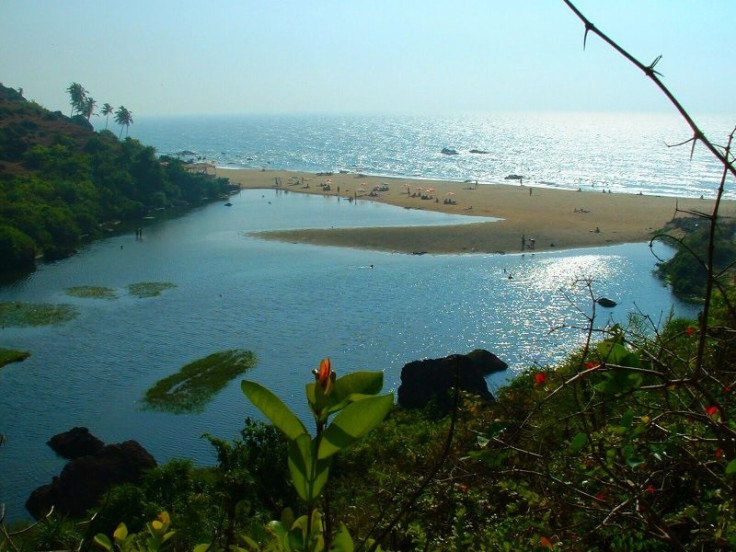Drugs, Gang War and Murder: Goa in the Eye of India-Nigeria Diplomatic Storm
Drug peddling, gang fights and staggering number of murders make up seamier side of Goa

The murder of a Nigerian man in a drug-related turf war in Goa, India's most well-known tourist destination, is snowballing into a diplomatic row between Abuja and New Delhi.
Obado Simeon was hacked to death on 31 October. His body, bearing many stab wounds, was found lying nearly 500 yards away from the house of a local legislator.
The small Nigerian community in Goa attacked the police in response, damaging property and blocking traffic on a main highway for hours. They blocked the police jeep carrying the body of the dead man and the corpse was dumped on the road.
Police arrested 53 Nigerian nationals and the government launched a crackdown on all foreigners staying illegally in Goa, a popular destination for sun-starved Europeans.
"There are only 50,000 Nigerians living in India but there are over a million Indians living in Nigeria. Thousands of Indians living there will be thrown out on the streets if the forcible eviction of Nigerians in Goa does not stop," Jacob Nwadadia, Nigeria's consular attaché, said.
The Nigerians' bust-up with the local people has ruffled many feathers in Goa, which is ruled by the Hindu nationalist BJP, which has cracked down on the drug-peddling and hippie-type tourism that the beach state is famous for.
Police said Simeon was killed in a mafia turf war between rival drug gangs. A minister in the BJP government was said to be involved.

The chief minister of Goa, Manohar Parrikar, said that the killers would be arrested, regardless of nationality.
"Property was damaged and a national highway was blocked. The Nigerians involved don't even have proper documents," he said.
The government's eviction order on illegal visitors was met with allegations of racial discrimination.
"Indians need to understand that a large number of Nigerians are living legally in India and even if some are living illegally, there are laws in place to deal with that and those should be implemented", Ndubuisi Vitus Amaku, Nigeria's high commissioner to India, said.
Amaku raised concerns for the safety of thousands of Nigerians living in India.
The attack on Simeon came on the brink of peak tourist season in Goa, whose silver sands attract hordes of Europeans, particularly from Britain, every year. In 2012, about 120,000 UK citizens visited the region.
It looks pristine, but drug peddling, gang violence and a staggering number of murders every year make for Goa's seamier profile. According to official records, as many as 61 foreign tourists were killed in Goa in 2012. One third of the dead were British, according to the BBC.
Locals say that Goa's drug mafia is controlled by gangs from different parts of the world. In October, a British man was arrested in the biggest ever drug seizure in Goa, worth 20.5 million rupees ($330,000).
In 2012 Goa's government, led by a party which espouses the puritanical Hindu nationalist ideology, put foreigners under unobtrusive surveillance in order to put the brake on drug peddling and related offences.
Drinking and dance club ban
In April 2013, the government banned drinking on beaches and legal drinking hours were slashed. A ban was enforced on dance bars and rave parties were raided.
The recent crackdown has implications for the narcotics industry in Goa, the police said.
"The local drug mafia which appears to have engineered the murder now has an upper hand. The Nigerian gang will not have time to consolidate their position before the tourist season hits its peak and drugs sales hit a peak," a senior police official told IANS news agency.
While the local government said it would not roll back measures to curtail the "menace of drug-peddling", the Indian federal government offered an olive branch to the Nigerian population.
A spokesman of the Indian foreign ministry said the government was sure that the row could be settled "amicably".
"Obviously the Nigerian High Commission is concerned and there is a sense of anguish at what may have happened to some of their nationals," the official said.
A Nigerian presence has been growing in India in recent years. Many Nigerians go to India to do business and for pursuing higher education. The Goans, however, are apprehensive about the growing number in the state and their alleged involvement in drug peddling and crimes. According to a Goan legislator, many Nigerians who accept a place in Delhi universities pack their bags and go to Goa instead.
"The incident has painted all the Nigerians as bad," said Anil Kester Ible, a Nigerian national who runs a restaurant in Goa. The intervention of the Nigerian government on the issue would ease tension, allowing genuine Nigerians to live in the state peacefully, he added.
The Goans are equally agitated about the way Nigerian officials handled the issue.
"Does the Nigerian ambassador expect me not to arrest Nigerians taking the law into their own hands?" asked the chief minister. He also claimed that a Nigerian official had sent offensive text messages to a police officer investigating the case.
The government said the police have arrested the alleged murderer of Simeon and would continue its crackdowsn on crime and illegal immigration but that sparked claims of racial profiling.
"There is a large Indian community working in Nigeria," said a spokesperson at the Nigerian High Commission. "There are two temples in Lagos and all Indians have freedom to worship and for their other activities. We are demanding the same."
© Copyright IBTimes 2024. All rights reserved.






















